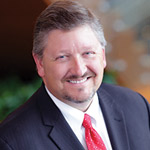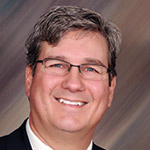For those who manage or operate skilled nursing facilities, the work they do can often feel like juggling five bowling balls and spinning 20 plates at the same time. It is truly a balancing act, and one that takes place 24 hours a day, seven days a week.
While providing top-notch care for residents is paramount, the work to make that happen and keep compliant with federal and state regulations, fulfill staffing requirements, communicate with clinicians and families, and ensure best-in-class pharmacy services are just some of the many tasks that must be done, and done right.
To fulfill their mission, skilled care centers cannot of course perform tricks like juggling and spinning to be the care leader they seek to be. Instead, these providers must build their core strengths from inside their facilities, and where needed partner with like-minded vendors to care for residents in the best way possible.
It is here in the pharmacy space that PharMerica is a true collaborator with long term care operators, and it is in this care setting that the leading pharmacy organization has staked out new ground by focusing on the twin goals of being both a local and national partner to clients.
Local Service, National Scale
The local comes in the form of PharMerica having more than 200 pharmacy consultants living and working in the communities in which the skilled nursing facilities they serve are located, as well as employing some 70 local nurse consultants and 129-plus local pharmacies throughout the country.
The national is represented by the expertise and scale only a large pharmacy operation can provide, giving customers real-time access to intelligence and guidance on regulatory and policy issues affecting a skilled center’s operations and financial bottom line.

The mix of local and national service is designed to cover all bases for a skilled nursing operation’s pharmaceutical and medication management needs, says T.J. Griffin, chief pharmacy officer, PharMerica.
“The closer in proximity your customers are, the closer the bond with the customer,” he explains. “You don’t want to be distant, you want to be a part of the community, and you want the employees to be able to visit the customers and make that easy. Then they can become part of the culture of their facility.”
This presence makes the service better. “You can provide more local empathy because you are a part of that community, and it creates a sense of ownership and empathy to the health care of the communities that you serve. We encourage the involvement of our pharmacies in this way,” Griffin says.
At the same time, PharMerica is a national organization, he says, giving skilled care providers a larger partner with expertise and know-how to educate, inform, and implement regulatory policies and mandates that often change on a regular basis.
“We have a very active government relations division that works on behalf of our customers and patients
both at a state and national level,” Griffin says, noting recent national efforts to help clients implement the new Patient-Driven Payment Model (PDPM) as an example.
“Now it’s what’s next. Our next clinical symposium will focus on the post-PDPM world and what do our facilities need to do to be successful. We are also making a big effort this year on falls reduction, putting together initiatives that focus on both skilled nursing and senior living facilities,” he says.
Partnering with Care Providers
For PharMerica client Health Concepts, the local-national coverage is a boon for business. Kelly Arnold, chief operating officer, and her colleague Lisa Ferreira, director of purchasing at Health Concepts, say the in-depth nature of PharMerica’s product and service offerings is a must, given the challenges the Rhode Island skilled nursing management company faces.
In growing from one small nursing center in 1964 to Rhode Island’s largest skilled nursing provider, employing more than 1,400 Rhode Islanders in 11 nursing centers throughout the state, family-owned and -operated Health Concepts values the PharMerica partnership, Arnold says.
“They provide us with all the pharmaceuticals we need and on a timely, never-fail basis. They provide training and consulting services, and the consultants are in our buildings monthly, they are there for QAPI [Quality Assurance/Performance Improvement] reporting, and any type of in-service that we need in terms of training. PharMerica is the sole provider of pharmaceuticals to each home,” she says.
Ferreira, who is the point person for Health Concepts on negotiating vendor contracts, notes that the company also uses PharMerica’s medication availability system RxNow with much success.
A Constant Presence
For Arnold, PharMerica’s expertise on regulations is vital. She points to the fact that local consultant pharmacists are always up on what is happening at the state and national levels. The biggest issues in this area include meeting the requirements in the ever-complex Rules of Participation and preparing for and implementing their systems for PDPM.
“Their consultants will also come in and do medication reviews for us,” Kelly says. “They really look at the whole piece, including cost-containment. They don’t just deliver drugs and leave. They do a lot of record auditing to make sure we’re compliant, make recommendations, talk to the doctors and nurses and explain options for care. They really are a partner.”
Arnold says Health Concepts meets with PharMerica quarterly, and in the nursing centers, consultants see the pharmacist monthly.
“It is comforting to have them so available in the community we serve. We recently had an issue in one of the buildings, and we called PharMerica and they were with us the whole way,” she says. “They walked us through a whole series of audits and things we needed from them, and they immediately stepped up and helped us and that was really great. So, we have our regular meetings with them and on an as-needed basis.”

Lane Sieman, senior vice president of client services, PharMerica, says the local-first strategy of having pharmacy consultants as the company’s “boots on the ground” is vital. “Our local pharmacists are there in the community, seeing their customers as they go about their lives, like in church or at the grocery store or at a Little League game,” he says.
In the end, Ferreira says the relationship with PharMerica is about the shared commitment both Health Concepts and the pharmacy management provider share and moving forward to tackle new challenges with the mix of local and national service and expertise.
“If other companies are looking for a model to bring to the table as a vendor, that would have to be the one PharMerica has,” she says.